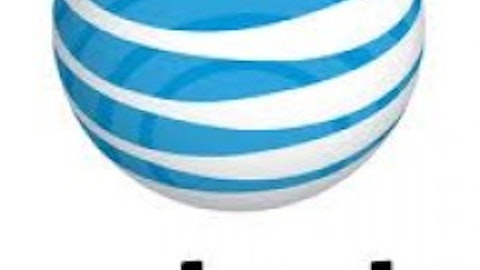This year has seen a lot of consolidation within the domestic wireless telecommunications industry. Carriers were partnering left and right; T MOBILE US INC (NYSE:TMUS) and MetroPCS have merged, and SoftBank has now effectively taken over Sprint Nextel Corporation (NYSE:S). Leap Wireless International, Inc. (NASDAQ:LEAP) was being left alone, and it needed a suitor — badly.
The prepaid specialist got what it was looking for in AT&T Inc. (NYSE:T), which currently has a $15-per-share offer on the table. According to Leap’s preliminary proxy filing, it’s been a long and winding road.
You and I have memories
Leap Wireless International, Inc. (NASDAQ:LEAP) has always faced intense competitive pressure from larger rivals that enjoy advantages in infrastructure, access to capital, spectrum, and brand recognition, among many others. These threats would intensify further with all the consolidation happening around it.

The language in the filing is rather gloomy. Here are some snippets:
- “Leap Wireless International, Inc. (NASDAQ:LEAP) has experienced net losses in each of the last seven years, and its performance has declined significantly over the past year.”
- “The number of Leap’s end-of-period customers declined 22% between March 31, 2012 and June 30, 2013, resulting in Leap’s fixed costs (including its significant purchase commitments) being spread over a smaller customer base. Leap’s variable costs per customer have also been increasing, resulting in increasing pressure on operating margins.”
- “At the same time, Leap Wireless International, Inc. (NASDAQ:LEAP)’s high level of indebtedness has constrained its ability to raise additional debt to finance capital expenditures, purchase additional spectrum and make other business investments needed to meet customer demands and remain competitive.”
- “In addition, the high costs of LTE network deployment, coupled with Leap’s limited spectrum depth, have constrained both Leap’s ability to deploy LTE services across its network footprint and to provide the data throughput speeds required to remain competitive.”
Leap Wireless International, Inc. (NASDAQ:LEAP)’s board started exploring “strategic alternatives” as early as December 2009, and began negotiations with various other players in the industry. The company garnered some interest from a certain “Player A” in the sector in 2010, a clear reference to the reported talks with MetroPCS at the time. Talks stalled and nothing materialized.
The struggling carrier then turned to Sprint for a five-year MVNO agreement on Sprint’s 3G network, as an alternative to building out its own network.
In the summer of 2011, Leap Wireless International, Inc. (NASDAQ:LEAP) met with a “satellite communications” player, which can only be DISH Network Corp. (NASDAQ:DISH). Leap abandoned negotiations after it felt they were “no longer productive.”
Come together
Talks with AT&T Inc. (NYSE:T) started in September 2011, which initially included the possibility of Leap buying certain markets from AT&T that the larger carrier was looking to divest. AT&T was looking to buy T MOBILE US INC (NYSE:TMUS) at the time, and divesting markets would potentially help Ma Bell earn regulatory approval to swallow the magenta carrier. Talks were in “advanced stages” when regulators vetoed AT&T’s deal with T-Mobile, which subsequently ended Leap Wireless International, Inc. (NASDAQ:LEAP)’s negotiations.
A few short months later in January 2012, Leap met again with AT&T Inc. (NYSE:T) CEO Randall Stephenson to talk about a merger. Talks proceeded for another couple of months, covering a wide range of possibilities including a merger, MVNO arrangement, or spectrum sale. By April, Stephenson was no longer interested.
Over the next year, Leap Wireless International, Inc. (NASDAQ:LEAP) would pursue other suitors in the hopes of selling itself, negotiating with a total of four companies other than AT&T Inc. (NYSE:T).
Negotiations with Stephenson resumed early this year in February. By June, things were getting pretty serious. AT&T Inc. (NYSE:T) put a $9.50 per share offer on the table, and specified that it wasn’t willing to pay a termination fee if things fell through, presumably because it was still sore from handing over AWS spectrum and billions in cash to T MOBILE US INC (NYSE:TMUS).





